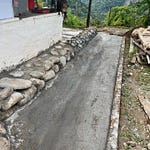The Unseen Economy: Nature, Spirit, and the Human Exchange
The relationship between humanity and the natural world forms the bedrock of existence, an intricate web often obscured by the complexities of modern life. Within indigenous territories, such as those in the Caribe Sur, part of the Talamanca La Amistad World Heritage Site, the profound connection between ecological preservation and cultural survival is evident. These lands, inhabited by peoples like the Kavekar and Bribri, are sustained through a deep-seated respect for nature, maintaining biological connectivity across vast forested areas. This reverence highlights a fundamental, often overlooked, aspect of human economy: its inherent spirituality and its roots in the natural world.
The Kogi people, descendants of the Tairona civilization residing in Colombia's Sierra Nevada de Santa Marta mountains, offer a compelling illustration of this worldview. For the Kogi, their mountain home is not merely a place but the sacred center of the universe, the Earth Mother whose principles guide their society. Central to their philosophy is the concept of balance and reciprocity with nature. They practice "pagación espiritual," a spiritual payment or offering made in exchange for the resources taken from the earth. This isn't just ritual; it's a fundamental economic and spiritual principle – acknowledging that benefiting from nature necessitates giving back, often through spiritual means like gratitude or focused intention conveyed through offerings. They believe that natural calamities, like climate shifts, changing seasons, and increased pests affecting their crops, are direct consequences of humanity's failure to maintain this balance, of taking without adequate repayment. As stewards of the land, they practice sustainable agriculture, avoiding artificial inputs and interpreting a good harvest as nature's sign of gratitude.
The spiritual core of Kogi society is maintained by the "mamas," spiritual leaders chosen in infancy and trained for decades. This training involves profound isolation, spending years (from roughly age 14 to 28) in darkness within caves to absorb ancestral knowledge and learn to communicate directly with the spiritual aspects of nature, often referred to as Sewa. This intense process fosters a deep understanding of the interconnectedness of all things. Despite the mama's crucial role, Kogi society strives for egalitarianism, where all members are valued, and decisions are made collectively. Daily life incorporates spiritual practice; women weave bags as spiritual work, while men engage with the poporo, mixing coca leaves and lime from shells in a ritual gourd to enter a state of connection.
This indigenous perspective starkly contrasts with the prevailing modern Western relationship with the earth, which is often characterized by extraction without a corresponding sense of spiritual reciprocity. Ancient peoples consistently linked their economy to the spiritual world, recognizing that every element of nature possesses a spirit connected to the Creator. Modern society, however, is largely separated from this understanding by a "man-made sheath"—the abstract system of money and finance. Money acts as a powerful intermediary, a form of magic that obscures the direct economic relationship with the earth. Our bodies themselves are borrowed from the earth, placing us inherently within this natural economy.
The modern financial system, with its contracts, bonds, and collateralization (symbolized by instruments like birth certificates), can be viewed as another form of shamanism – the "paper world". This system also operates on principles of balance and exchange, albeit in ways that may seem opaque or even sinister. The suggestion arises that certain destructive rituals within high finance might be interpreted as a dark form of "pagación"—a repayment to nature for resources taken, fulfilling contractual obligations within a framework where dependents (human lives collateralized via contract) can be forfeited if the guardian (the system) deems them unaffordable. This stands in stark contrast to the Kogi's loving, albeit potentially frustrated, view of even those who damage the earth as "minor brothers".
Ignoring this fundamental spiritual economy carries consequences. The failure to maintain balance with nature results in "reaping the whirlwind"—manifesting as ecological crises and calamities. Nature is not passive; it responds to human actions and requires acknowledgment. Perhaps technological shifts, like harnessing zero-point energy drawn directly from the ether rather than the earth, could offer a path toward rectifying this relationship. Ultimately, the underlying spiritual and economic laws governing our relationship with the planet apply universally, whether recognized or not.
The wisdom embedded in indigenous cultures like the Kogi reminds us of the essential, reciprocal spiritual economy that binds humanity to the natural world. It challenges modern society to look beyond the veil of abstract finance and recognize the profound responsibilities inherent in our dependence on the earth, lest the consequences of imbalance continue to unfold.









Share this post